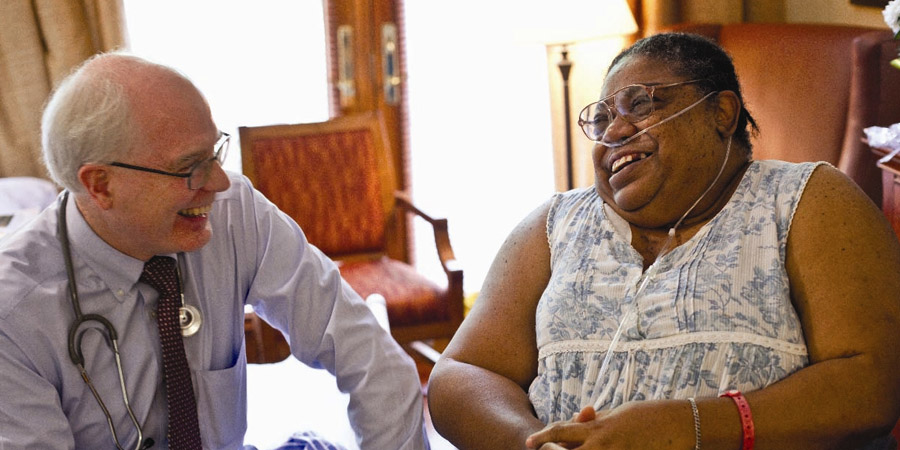The Growing Importance of Advance Care Planning
January 25, 2014
Discussing end-of-life wishes can be an uncomfortable topic, but it is an extremely important one. In fact, it’s a good idea for patients with any serious chronic illness to begin this advance care planning soon after receiving a diagnosis. “Taking the opportunity to initiate this planning early with your healthcare provider will enable you and your family to make educated decisions about treatments you may need to consider in the future,” says W. Anthony Riley, MD, Medical Director of Gilchrist Hospice Care, Medical Director of Gilchrist Greater Living, and Physician Board Chairman of Greater Baltimore Health Alliance. “For patients with advanced chronic illnesses, many of the available treatments have substantial burdens along with their benefits. Engaging proactively on advance care planning gives you, your family and your provider the time needed to consider which treatment approaches will best meet your needs further down the road.”
I encourage everyone in the GBMC community with a chronic illness to take the opportunity to initiate this important dialogue with their healthcare provider
This dialogue should result in the completion of Medical Orders for Life-Sustaining Treatment (MOLST) forms. The MOLST order, a medical order made by a physician or nurse practitioner, complements the Advance Directive, a legal document, which provides general guidance on patients’ wishes and allows them to name a healthcare agent. MOLST forms cover, in detail, wishes regarding everything from CPR and artificial ventilation to blood transfusion, antibiotic use and artificially administered fluids and nutrition. Patients and their physicians should review and update the document periodically. If a MOLST form is on record, it will be treated as a medical order and will be followed accordingly, even if a patient is unable to speak for him or herself.
Conversations about advance care planning are encouraged and, in fact, expected, in the current healthcare environment. Says Dr. Riley, “We want our patients and physicians/nurse practitioners to engage in open, honest communication and shared decision making so patients will have the right mix of treatments and support available to them at each stage of their illness.”
Advance care planning has been found to be very beneficial for patients, families and providers alike. “Many of my patients report feeling a profound sense of relief after engaging in advance care planning,” says Dr. Riley. “They have a better understanding of what their disease course might look like, they feel confident that their provider and their family members understand their wishes, and they feel that they have freed their loved ones from the burden of making difficult decisions in a crisis.”
Gilchrist Hospice Care now offers an Advance Care Planning Series for patients, their families and members of the community, led by W. Anthony Riley, MD, for individuals interested in learning more. The discussions are held on the second Tuesday of each month, and include topics such as general, cardiac, pulmonary and neurodegenerative conditions and dementia advance care planning.


